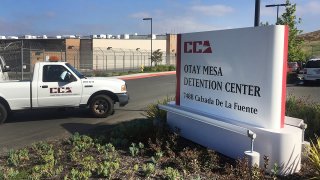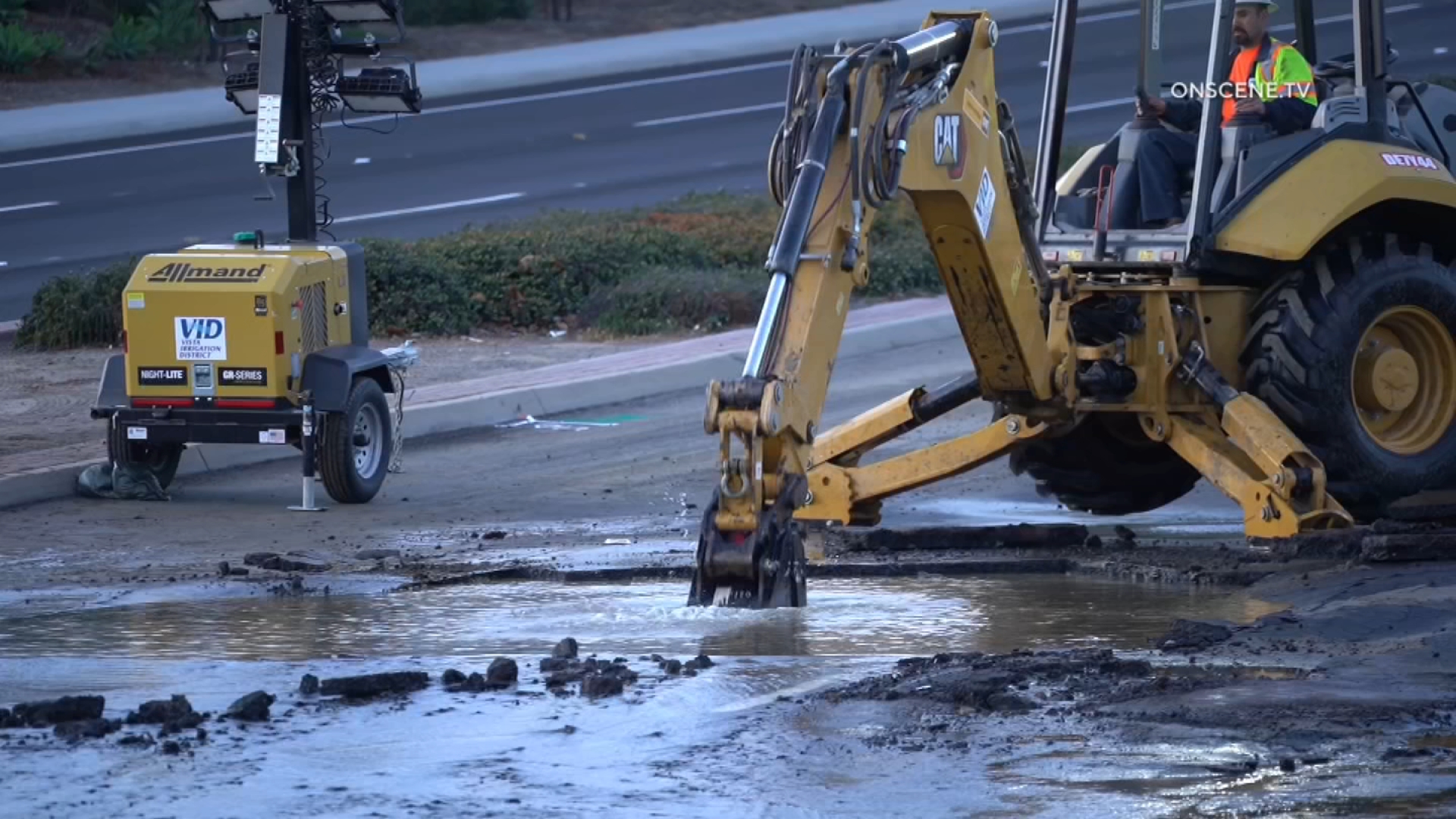
A San Diego federal judge ordered on Thursday that a group of "medically vulnerable" detainees at the Otay Mesa Detention Center be screened for release amid a COVID-19 outbreak at the facility.
The order from U.S. District Judge Dana Sabraw came as part of a class-action lawsuit filed by the American Civil Liberties Union's San Diego chapter, calling for the release of detainees at the U.S. Immigration and Customs Enforcement facility, which is run by private company CoreCivic.
As of Thursday, 162 detainees at the facility have tested positive for COVID-19.
The ACLU argues that overcrowded conditions at Otay Mesa have made social distancing an impossibility and puts detainees at serious risk of contracting the virus. The nonprofit is seeking a vast reduction in the inmate population -- of both ICE and U.S. Marshals' detainees -- but Thursday's hearing focused on a group of detainees considered at the highest risk of serious illness or death from COVID-19.
On Tuesday, attorneys representing the defendants told Sabraw that eight detainees fall under the designation of medically vulnerable. But a supplemental brief filed the following day by Otay Mesa Detention Center Warden Christopher LaRose's attorneys states that additional information from ICE medical staff indicated there are 51 to 69 ICE detainees who may fall within CDC guidelines for being at higher risk of severe illness due to COVID-19.
In an ACLU court filing, its attorneys cited the discrepancy as an issue "that raises serious concerns about access of unidentified medically vulnerable individuals to urgent medical care."
In his written ruling issued Thursday afternoon, Sabraw wrote that current conditions at Otay Mesa "are unconstitutional under the Fifth Amendment because the conditions of their confinement place subclass members at substantial risk of serious illness or death."
Sabraw said ICE will be allowed to consider detainees' criminal history, risk of flight and other factors, but the expectation should be that nearly all the detainees will be released.
Sabraw's order will also apply to any new or previously unidentified medically vulnerable detainees who fall under the parameters of the order, which pertains to Otay Mesa detainees age 60 and over or people with medical conditions that place them at higher risk related to COVID-19.
A Monday noon follow-up hearing will include a report from ICE detailing who has been released and what factors respondents relied on to prevent any detainees' release.



